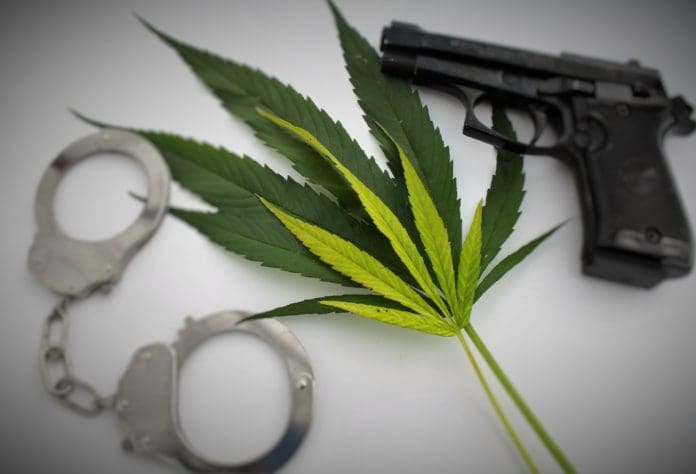
A federal appeals court docket on Wednesday upheld a district court docket ruling that the prohibition on firearm possession by marijuana customers is unconstitutional.
A 3-judge panel of the fifth Circuit Court docket of Appeals within the case U.S. v. Connelly mentioned the Texas lady concerned within the motion was a “non-violent, marijuana-smoking gun proprietor” whose Second Modification proper to maintain and bear arms shouldn’t have been infringed.
“The in need of it’s that our historical past and custom could assist some limits on a presently intoxicated particular person’s proper to hold a weapon, however they don’t assist disarming a sober particular person primarily based solely on previous substance utilization,” the ruling, written by Circuit Decide Kurt Engelhardt, acknowledged.
The case revolves round a Texas lady, Paola Connelly, who was indicted after El Paso law enforcement officials responded in December 2021 to a report of pictures fired at her house after a battle arose between her husband and their neighbor. Upon questioning, Connelly admitted that she generally smoked marijuana, and a subsequent search of the house discovered a number of firearms.
The U.S. Division of Justice (DOJ) argued that the federal regulation towards gun and ammunition possession by somebody who makes use of marijuana is per different historic restrictions on gun possession, equivalent to by “psychological defectives … and others whose possession of firearms is opposite to the general public pursuits.”
Nevertheless, the 5Th Circuit judges, leaning totally on the 2022 Supreme Court docket resolution in New York State Rifle & Pistol Ass’n v. Bruen, didn’t purchase that reasoning.
“Legal guidelines designed to disarm the severely mentally ailing don’t justify depriving these of sound thoughts of their Second Modification rights,” the ruling acknowledged. “The analogy stands provided that somebody is so intoxicated as to be in a state corresponding to ‘lunacy.’ Simply as there isn’t any historic justification for disarming residents of sound thoughts, there isn’t any historic justification for disarming a sober citizen not presently underneath an impairing affect….”
The ruling then embellished on that thought, stating: “So the Bruen-style analogical query is that this: Which is Paola extra like: somebody whose psychological sickness is so extreme that she presents a hazard to herself and others (i.e., somebody who can be confined and disadvantaged of firearms underneath this custom and historical past of Second Modification regulation)? Or a repeat alcohol person (who wouldn’t)? Paola falls into the latter camp. Whereas intoxicated, she could also be corresponding to a severely mentally ailing particular person whom the Founders would disarm. However, whereas sober, she is sort of a repeat alcohol person between intervals of intoxication, whom the Founders wouldn’t disarm….”
The ruling additionally criticized the DOJ’s argument that the federal government’s energy allowed it to resolve who was “harmful” sufficient to have rights taken away.
“The federal government additionally contends that individuals whom Congress deems ‘harmful’ can have their Second Modification rights stripped,” the ruling acknowledged. “In doing so, it posits that Paola—a non-violent marijuana person—falls into the class of ‘harmful.’ However our historical past and custom of disarming ‘harmful’ individuals doesn’t embody non-violent marijuana customers like Paola. Certainly, not one piece of historic proof means that, on the time they ratified the Second Modification, the Founders approved Congress to disarm anybody it deemed harmful.”
The ruling concluded: “Maybe the federal government might succeed if it had been capable of display that the medicine Paola used had been so highly effective that they rendered her completely impaired in a manner corresponding to extreme psychological sickness. It additionally may succeed if it had been capable of display that Paola’s drug use was so common and heavy that it rendered her regularly impaired. But it surely exhibits proof of neither right here.”















![[SHOT 2026] Alpha Foxtrot Attila: Comped 1911 for Carry](https://i0.wp.com/www.thetruthaboutguns.com/wp-content/uploads/2026/01/IMG_1960-scaled.jpeg?w=120&resize=120,86&ssl=1)





